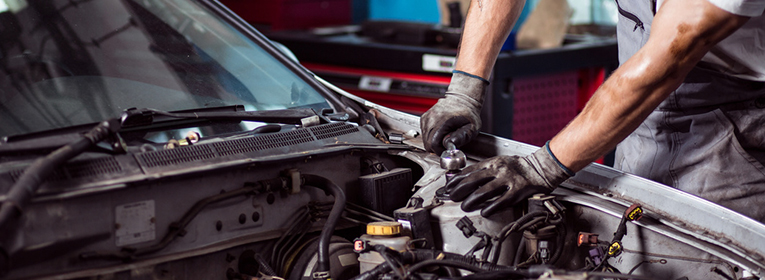
Should I Rent Or Purchase An Auto Repair Shop?
It seems like it was just yesterday where you were working long hours in the shop, performing numerous repairs, wishing you were running the shop, and not greasing up your fingers every day. Anytime you saw your boss, the same thing went through your head: “I can do what he’s doing, only better.” You looked into it, saw that you could afford to leave your job, and now are ready for Stage 2: do you rent or purchase a shop?
Let’s get started:
“I want to purchase a shop.”
So, you’ve made the decision you rather purchase than rent a shop. This is usually a better choice if you already have a Rolodex of clientele who are familiar with your work and trust what you do. Maybe you’ve been repairing their car(s) for years, and they’ve referred countless friends and family to the shop, specifically for YOU to work on their vehicle. If you choose to buy a shop, you’re going to need something known as an SBA loan. This loan will allow you to get your business started but remember it’s a loan and not free money. And if you want to get that loan, you’re going need a business plan.
According to Hank Nunn, a veteran of the collision repair industry with over 35 years of experience, “creating a business plan will help you decide if you should open a business, then guide you as you run the company into the future.”
Do you currently have a plan in place? We’re not talking about a document with a few goals you want to make, but an actual business plan that can help you secure the SBA loan. Otherwise, you’re setting yourself up for failure and are running on blind faith. A business plan prepares you for anything and everything that your shop would need to be successful. Are you planning on putting in a paint booth? You’re going to need permits, Hazmat training, and more.
Let’s go through what sections you need in your business plan that will guarantee you that loan:
- Executive Summary
- Market Analysis
- Company Description
- Organization and Management
- Marketing and Sales
- Service or Product
- Funding
- Financials
Owning a shop can be incredibly rewarding, and there are several tax benefits you can receive by merely being a business owner. And when you retire, you’ll still be getting residual income from the shop. How awesome is that?
However, there are several potential drawbacks you can’t turn a blind eye to that you may not be aware of. When you secure your SBA loan, take a good look at the building you want to purchase. Do you see any potential significant expenses in the near future, such as a new roof or any plumbing issues? As the owner of the building, you’re responsible for anything that isn’t an insurance claim. This can be a new parking lot, taxes, heat or A/C, or even a possible new entrance because the state is repairing the road your shop is located on. You need the cash flow to prepare for the inevitable, even if you think it’ll never happen to you.
“I want to rent a shop.”
If you prefer to rent a shop, it’s most likely one of two options: either you want to get the business off the ground. Or, you’re looking to do a rent to own situation, Either way, this still requires preparation and presenting a solid business plan to the SBA.
Business owners who choose to rent their buildings are because they want more time to focus on running the business and less on the potential stresses that come from ownership, such as maintenance duties. Not to mention, it also allows you to rent in a prime location that will get your name out there and attract customers. If you don’t already have an existing client base, renting would probably be your best option for this reason alone.
There are downsides of renting a building, such as potential rent increases and higher costs once your lease is up. You may also find that because of your financial situation, there isn’t enough to purchase a facility, so renting is your only option. Perhaps the location isn’t in the ideal part of town, and it fits your needs, but the overall real estate value of that area is dropping. With a lease, you’re not suffering the effect of the declining market and can easily find another location once that lease is up.
If leasing/renting a shop is what you’re looking to do, these are just some of the terms and provisions regarding commercial leases that you should be familiar with. Don’t be afraid to ask someone for help if you don’t know what these mean:
- Gross lease
- Net lease
- Percentage lease
- Lease term
- Rental rate
- Escalation clause
- Maintenance
- Competition
- Subletting
- Improvements and modifications
- Taxes
- Insurance and liability
- Renewal and purchase option
Hypothetical Start-Up Costs
In Chapter 2 of our book, “Automotive Business Start-Up Guide,” we discuss on page 40 what the hypothetical start-up costs would be. Of course, your own shop’s start-up costs will vary, depending on various factors such as where you’re located and offered services. Here’s a little sneak preview of what you can read in our guide:

This is an exciting time for you, and we want to help you turn your dreams into reality! We discuss business operations and so much more in our over 100-page manual, available now and made just for you. If you’d like to find out more about what you need to rent or purchase a shop, click here. Let TurnProTech help you make it happen!

